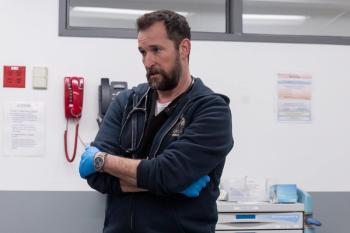
Parents of Kids with Cancer Search Google Twice as Much
Google search histories could lead to early diagnosis and treatment of cancer.
Parents who have children with cancer perform health-related searches at over twice the rate of the general population, according to
The Children’s Hospital of Philadelphia research team found that parents whose children have cancer performed health-related searches 13% of the time, compared to 5% for the general population. The parents’ Google use peaks at about one month after the diagnosis, and 18% of health-related searches represent searches for cancer support, such as information about cancer charities and inspirational quotes.
Parents searched “symptoms, disease and medical information” the most (31%), followed by “information about hospital/care sites/pharmacy” (29%). Other searches included “medications” (8%) and “treatment and disease management” (6%).
The findings also noted an uptick in
“Every time I meet with parents for the first time after a diagnosis, they tell me, ‘I knew that something wasn’t right,’”
Phillips and his team enrolled 21 parents, including 17 mothers, of children diagnosed with cancer at Children’s Hospital of Philadelphia in summer 2017. The parents consented to share their Google search histories from six months before the child’s diagnosis to the time of enrollment during their child’s treatment.
Members of the research team coded searches into categories and analyzed the findings.
The team developed and divided Google search queries into one of 18 categories, grouped and designated as either “general,” “health-related” or “cancer-specific.” Categories included entertainment, food and drink, social media, health insurance, treatment and disease management, chemotherapy medication and cancer support.
Due to the peak of internet use near the time of diagnosis, the study authors suggest that educational interventions should be considered to improve parents’ ability to navigate the internet for cancer information.
The authors wrote that because parents are searching Google at an increased rate before they know whether their child has cancer, there’s an opportunity for earlier diagnosis and intervention. This has the potential of adding a predictive element to whether or not a person has cancer.
Searches pertaining to supportive care and health insurance could suggest that parents are using the internet to help deal with the day-to-day fiscal and logistical issues that arise when a child is sick.
Phillips said that a future paired study is warranted to investigate how adolescent patients search for health information, compared to how their parents search.
Get the best
Related





























































































